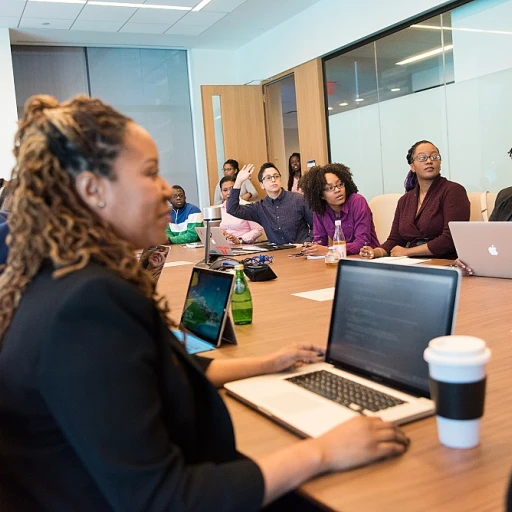Overview of Illinois Employee Break Laws
Illinois Break Laws Explained
If you're navigating the complex landscape of labor laws in the United States, understanding the intricacies of Illinois employee break laws is essential. While federal law provides a framework for breaks and meal periods, each state, including Illinois, has its own regulations that employers must adhere to for compliant workforce management. This section will explore the key aspects of these laws in Illinois.
In Illinois, the law mandates that employees working 7.5 or more consecutive hours are entitled to a meal break. Specifically, this break should be at least 20 minutes long and must occur within the first 5 hours of work. Unlike federal law, which does not require employers to provide meal breaks, Illinois enforces a break period that can be either paid or unpaid, depending on whether the employee is relieved of all work duties during this time.
Also, Illinois does not mandate rest breaks for adults, leaving the provision of shorter breaks largely at the discretion of employers. However, if employers do choose to provide these rest breaks, best practices suggest that breaks lasting less than 20 minutes should be paid, aligning with federal guidelines.
Employers in Illinois need to carefully manage these requirements to avoid potential labor law violations, which could otherwise subject the employer to penalties or lawsuits. The integration of human resources technology can play a pivotal role in managing and tracking compliance more effectively. For more insights on streamlining this process, click here.
Understanding these regulations is crucial, not only for maintaining compliance but also for ensuring that employees take the necessary breaks to sustain high productivity levels without compromising their well-being. In the ensuing sections, we will further explore how HR technology can help manage break policies, the challenges employers might face, and best practices for ensuring legal compliance.
Implications for Human Resources Technology
The Role of Technology in Illinois Break Law Compliance
Utilizing human resources technology is pivotal for ensuring compliance with Illinois break laws. Employers are required to understand and implement the state-mandated requirements concerning employees' breaks, be it a meal or rest period, to avoid potential legal complications.
Firstly, technology solutions assist in accurately recording work hours and breaks. With platforms designed for optimizing employee time tracking, employers can monitor breaks employees are entitled to under Illinois law. This is crucial as the law mandates specific meal and rest breaks depending on work hours and duties performed.
Additionally, HR technologies improve the management of paid and unpaid breaks. By integrating these systems, businesses can seamlessly handle compliance related to the federal law guidelines in conjunction with the more specific Illinois break requirements. Furthermore, technology can aid in setting up alerts and reminders for employers to notify them when employees are eligible for breaks, ensuring no lapse occurs.
Another significant benefit lies in addressing payroll concerns, particularly when dealing with breaks lasting only minutes. The accuracy offered by advanced labor laws tracking systems can streamline the process of calculating work hours and minimum wage adjustments. This mitigates the risk of errors that could lead to non-compliance with the laws of Illinois.
Lastly, these systems create documented evidence of compliance efforts, which can protect employers in case of disputes or audits related to labor laws and employee break management. The integration of technology in handling Illinois's complex break laws not only supports regulatory adherence but also optimizes employee satisfaction and productivity.
Challenges in Implementing Break Policies
Overcoming Obstacles in Break Policy Execution
Implementing break policies in compliance with Illinois break laws can be a complex endeavor for employers. Not only do they need to consider state-specific requirements, but also federal labor laws, creating a layered challenge for human resources departments.
First and foremost, understanding the nuanced interplay between state and federal law is crucial. For instance, Illinois law requires meal breaks for employees working a specific number of consecutive hours, whereas federal law may have different stipulations concerning breaks. This necessitates HR professionals to have a clear grasp of both to establish lawful and adequate rest breaks.
- Accurate Tracking Systems: Employers are required to maintain precise records of meal and rest breaks, ensuring there's no conflict with laws Illinois mandates. Human resources technology can aid in automating this tracking, reducing human error in monitoring the hours employees work. This includes both paid and unpaid breaks.
- Employee Education: It's essential for employees to be informed about their rights regarding breaks. A well-educated workforce can self-monitor if their required breaks are not being respected, impacting overall work satisfaction.
- Consistency Across Roles: Employers must ensure that break policies are consistent across all roles, preventing any unintended discrimination.
This is crucial as roles with overtime or longer work hours might face challenges adhering to break laws. - Technology Integration: Incorporating advanced HR tech solutions can facilitate smoother policy enforcement. Efficient platforms contribute significantly to crafting effective break management strategies. In many scenarios, resources like strategic consulting can enhance the employee experience by optimizing rest break implementations.
Adhering to these guidelines can mitigate risks and challenges associated with implementing compliant break policies. By leveraging technology and ensuring comprehensive education and awareness, companies can better navigate this complex landscape. For further insights, exploring effective methods for crafting feedback processes can also offer valuable strategic perspectives in enhancing compliance and employee satisfaction.
Case Studies: Successful Implementation
Real-World Applications of Break Management
Understanding labor laws in Illinois is crucial for employers looking to implement effective break policies. Employers are required to ensure that employees working over a certain number of consecutive hours are provided with meal breaks. But what does successful implementation look like in practice?
In various workplaces, employers have strategically aligned their break schedules with federal labor regulations and Illinois break laws. By doing so, employees are consistently afforded the required meal periods and rest breaks.
- Compliance with Break Laws: Ensuring breaks last the necessary amount of minutes under labor laws.
- Balancing Work Hours: Alignment of work hours with federal and Illinois law, ensuring adequate time off for rest.
- Adapting to Federal Law: For companies operating across states, incorporating both state and federal law is essential, ensuring employees are fairly treated.
Some employers have instituted paid breaks to improve employee satisfaction and maintain compliance with national labor regulations. This not only enhances the workplace environment but also promotes employee well-being. By providing breaks at suitable intervals, employers foster a healthy work-life balance, especially for employees in demanding roles.
While considering the needs of meal breaks and rest periods, it is key for employers to also focus on optimizing break times and maintaining the flow of business operations. By utilizing technology and data analytics, companies can track break compliance and employee productivity, making necessary adjustments as needed.
Employers continually investing in innovative HR tech solutions ensure their compliance with break laws while also promoting efficient work practices, highlighting the need for ongoing adaptation and flexibility in policies as labor laws evolve.
Future Trends in HR Tech for Break Management
Innovative Directions for Break Management in HR Tech
In the evolving landscape of human resources, managing employee breaks effectively is essential for compliance with Illinois break laws and enhancing employee satisfaction. As technology continues to advance, future trends in HR tech are poised to streamline break management while ensuring adherence to labor regulations. One emerging trend is the integration of sophisticated time-tracking software. This technology enables employers to monitor employee work hours, ensuring that required meal and rest breaks are consistently granted and tracked accurately, minimizing discrepancies and potential conflicts. Additionally, automation is set to play a crucial role. Automated alerts and reminders can notify both employees and management when a meal period is due, ensuring compliance with the lunch and rest requirements mandated by Illinois and federal law. This system reduces the administrative burden on HR departments and empowers employees to take necessary breaks without oversight. The use of data analytics in break management allows employers to identify patterns in break usage and areas for improvement. By analyzing trends in unpaid or paid break times, HR can tailor break policies to meet legal standards and employee needs, ultimately fostering a more supportive work environment. Finally, mobile applications are changing the game for dynamic and remote workforces. These apps provide real-time access to schedules, allowing employees to manage breaks effectively. This accessibility ensures that employees working outside traditional office hours still receive the required rest breaks. As we look to the future, embracing these HR tech innovations in break management not only ensures compliance with Illinois labor laws but also enhances the overall employee experience, contributing to better workplace productivity and satisfaction.Best Practices for Compliance
Navigating Break Compliance Effectively
Implementing and managing employee breaks can be complex for many employers, especially given the nuances present in Illinois break laws. As per the law, breaks lasting at least 20 minutes are generally considered paid, whereas those longer may be unpaid, unless otherwise stipulated by specific company policies or collective bargaining agreements. For employers required to ensure compliance, here are some best practices to consider:- Clear Communication: Clearly communicate company policies on meal breaks, rest breaks, and work hours to all employees. This involves providing accessible policy documents and perhaps even incorporating this information into onboarding.
- Policy Enforcement: Make sure that managerial staff and HR leaders consistently enforce break policies. Utilize scheduling tools to ensure employees working consecutive hours get their required break times.
- Training Programs: Consider implementing training sessions for employees about their rights regarding breaks and meal periods under Illinois labor laws, as well as the expectations set forth by employers.
- Utilize Technology: Employ HR technologies that help in monitoring and managing employee breaks efficiently. This tech can also facilitate better tracking and accountability, helping to ensure both federal law and state laws are adhered to.
- Regular Reviews: Regularly review both federal labor regulations and state-specific laws Illinois might have to ensure ongoing compliance with minimum wage and other legal requirements. This is critical for adapting to any changes in labor laws that might impact break times.













